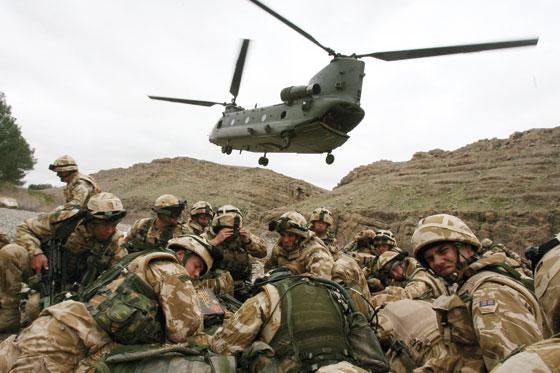
Journalists working in war zones have to put their lives and the lives of those that work with them at risk to get stories, leading journalists in the field have said.
BBC Middle East editor Jeremy Bowen said this morning that taking risks was an inevitable part of working in an ‘inherently dangerous’ environment.
Bowen was speaking in the wake of revelations that a British serviceman and an Afghan translator, Sultan Munadi, were killed during a pre-dawn raid to rescue New York Times – and former London Times – journalist Stephen Farrell from the Kunduz region of Afghanistan.
Military claims this morning suggested Farrell was kidnapped after he ignored security advice against entering a Taliban stronghold.
A senior Army source told the Telegraph: “When you look at the number of warnings this person (Farrell) had it makes you really wonder whether he was worth rescuing, whether it was worth the cost of a soldier’s life.”
Bowen, speaking on BBC Radio 4’s Today programme this morning, defended journalists’ risk taking.
He said: “You cannot operate in a war zone without putting your life and the life of other people at risk. It’s inherently dangerous…
“I know that it’s going to be agony now for Stephen Farrell because he will be looking at the fact that these people have died…that is something that is going to stay with him for an awfully long time – for the rest of his life.”
News organisations have warned that deteriorating security conditions in Iraq and Afghanistan could affect news coverage of the current situation following the rescue the Farrell.
The International Federation of Journalists today called for a safety review after in the light of Farrell’s kidnap and the death of Munadi.
Former Times foreign editor George Brock, now head of journalism at City University, told Press Gazette: “Stephen Farrell never struck me as someone who had a reputation for being a wild risk taker.
“Everybody who does the kind of thing he does is at some risk. But he never had a reputation for taking foolish risks.”
Vaughan Smith, a former solider turned freelance journalist also speaking on the Today programme, said the Farrell episode was a terrible tragedy: “Everybody is blaming everyone else. I think soldiers are inclined to perhaps forget that good journalism is the soldier’s friend and that courageous journalism is a patriotic act.
“There are many people saying that he was warned and shouldn’t have taken the risks that he took but, if you have got no guts then you don’t get any story and frankly, if you listen to everyone saying that is was too dangerous to go somewhere you wouldn’t get any story at all.”
Smith said the industry found it difficult to mitigate risk; “Clearly there are lessons to learn from this incident but the industry really doesn’t have the institutions to process the information and learn the lessons.
“The problem with this sort of thing is…if you take a silly risk in journalism and get it right, you get accolades and awards. If you take a sensible one, and get it wrong then you’re rubbished by your colleagues.”
Email pged@pressgazette.co.uk to point out mistakes, provide story tips or send in a letter for publication on our "Letters Page" blog
